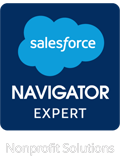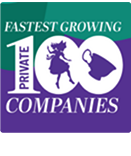Pledges vs. Recurring Donations
By Jenny Council, CRM Consultant for Idealist Consulting.
On the heels of Matt Scott’s excellent piece on the StayClassy blog, 7 Steps to Managing a Successful Recurring Revenue Program, let's take a look at the differences between a couple of recurring revenue options that are often confused: pledges & recurring donations.
I often see these terms used interchangeably, but apart from the fact that we get to collect regular income from both, these are two very different critters. Hopefully, by the end of this post, you will be clearer about when and why to solicit recurring donations vs. pledges.
Let’s start with some quick definitions:
- A pledge is a promise to pay a specified amount over a set period of time. For example, a donor might pledge $2,400 to be paid over four years, by installments of $50 per month. Pledges can be “conditional”, meaning payment comes due only when a condition is met or “unconditional” where there are no strings attached.
- A recurring donation is series of gifts given repeatedly on an open-ended schedule with no specific commitment from the donor. The donor can decide to end the arrangement at any time or pay indefinitely.
In both scenarios, a donor may be gifting $50 per month, so it may feel similar from their perspective, but for the organization, there are a number of factors to weigh when deciding which of these two you solicit. They differ significantly in terms of accounting, use cases, back-end processing and the relationship you are establishing with your donors. Let’s break it down.
Accounting: how will bookkeeping treat it
Pledges and recurring donations are accounted for quite differently. Recurring donations count as revenue as they are received, just like cash donations. With unconditional pledges, the total pledged amount is counted as revenue on the date it is pledged, even though you have no cash in hand yet!
Conditional pledges, on the other hand, count as revenue once the pledge conditions are met and for your donors, their pledge payment is tax exempt in the year they are paid.
A pledge is a debt owed by the donor; with the advantage that it shows up as projected cash flow, literally pledged into your budget. But that also means you need policies about when to write off the debt if a donor fails to pay. There are also calculations to be done in the revenue projections related to estimated write-offs, an amortized discount … help where’s my accountant! Recurring donations do not have these accounting burdens… or the benefits of promised cash flow.
With such a big difference on the bookkeeping side, it's best to consult your accountant and decide which option best meets your fiscal goals.
Use Cases: When do pledges vs. recurring donations make sense
At this point let’s leave the dry technical stuff, and look at some real-world examples. Fundraisers like pledge campaigns for the promise of guaranteed revenue. It is the model anyone who listens to public radio is familiar with. Your local station considers your call-in pledge as the revenue they can count on to plan programming for the coming year.
But it is donors like me that make radio fundraisers cry into their beer; for the life of me I could never keep track of my pledge expiration date, and by timing me out at spring or fall fund drive (which one was it again?), there were some years they lost out on my contribution (oops, I mistook the renewal letter for a booster gift letter and threw it out!). In order to get my money, public radio relied on me to take action on their behalf, consistently whenever my last pledge timed out…ha!
As a donor, pledge drives stressed me out. So I set up open-ended recurring payments even though my station had no way to account for them. Recently it seems the memo got through that people like me can provide consistent revenue without a promise to pay. Now they solicit for “sustaining members” to give open-ended recurring donations. Now the onus is on me to cancel my gift, not to initiate it.
Here’s another good example of a pledge campaign that makes sense, Mildred Kanipe Park is a local park to me. The local parks commission (who sadly bear no resemblance whatsoever to the fun-loving Pawnee Parks and Recreation Department), decided to raise revenue for a new campground by clear-cutting a forest in the park. Fortunately, Friends of Mildred Kanipe Park got the county to over-ride this decision, with the following condition; if the Friends raise $65,000 in public donations then the County will match the funds for the campground.
In this case, Friends of Mildred Kanipe Park need pledges. They need to know their supporters promise to pay, in order to secure the matching funds. The pledges are conditional- if they don’t raise the full amount, the match doesn't happen, so the pledges don't come due. But they need the full amount pledged and on the books. Then donors can pay in installments or in full.
Back-end CRM considerations
Earlier I said that there are different impacts of the CRM Donor Database back-end for each donation instrument. Recurring donations are just a string of individual gifts. Your donors probably don’t want to be thanked monthly, so determine what is most appropriate in your situation. An annual thank you with the end of year appeal? Or more frequent engagement communications?
Only you can determine the sweet spot between appreciating your donors and irritating them with too many touches.
Since a pledge is a promise to pay a set amount by a particular date, and this full amount is being counted as a receivable, your CRM needs to provide reports that recurring donations don’t require. You must report not just the pledge payments, but total pledged, the amount paid so far (distinguishing pledge payments from any other ad hoc gifts from that donor), amount still due, the start and end dates and the payment schedule.
Thank You letters should go out for the full value of pledges when they are first made, stating clearly that pledge payments are tax deductible only once they are paid. The donor may want to choose their preferred payment schedule, so be ready to manage different donors on different payment schedules.
Donors might wish to be invoiced when installments are due and might want receipts for payments made. These receipts should show the amount paid, the amount due, and remaining balance.
When payments are not received, your next invoice will include the full amount due, including both the current installment and any missed payments. Since finance is counting on these payments as positive cash flow, payments that are not made are considered delinquent and need to be reportable. You need to decide how far you will pursue delinquent pledges. How many reminders should you send before you write a pledge off? So be sure you have the administrative capacity to handle pledges if you chose to go that direction.
Living Opportunities, an agency that supports folks with developmental disabilities, has that administrative capacity. They have managed an effective pledge campaign for the last decade. By doggedly soliciting large multi-year pledges every year, those pledges stack up and provide a continuous dependable income stream. They start each fiscal year knowing how much pledged income they can count on to support programs.
This works because donors are always thanked promptly and appropriately, receive accurate reporting on the status of their pledge and high rates of pledge fulfillment and renewal are maintained with a highly attentive donor relationship strategy.
In summary
- Know your donors; decide which approach best fits the profile of your donors and how you manage donor relationships. Both strategies require thoughtful donor recruitment, relationship and retention.
- Know your fundraising goals; decide which strategy best addresses your need for sustainable income.
- Know your administrative capacity; make sure you have the necessary human, CRM and Accounting systems to handle whichever you chose. Pledges have some special backend considerations. But recurring donations also need a good tracking system for those automated payments.
Hopefully, you're more clear on when and why to solicit recurring donations vs. pledges. If you're ready to see what this looks like in your own instance of Salesforce- we can help.
















